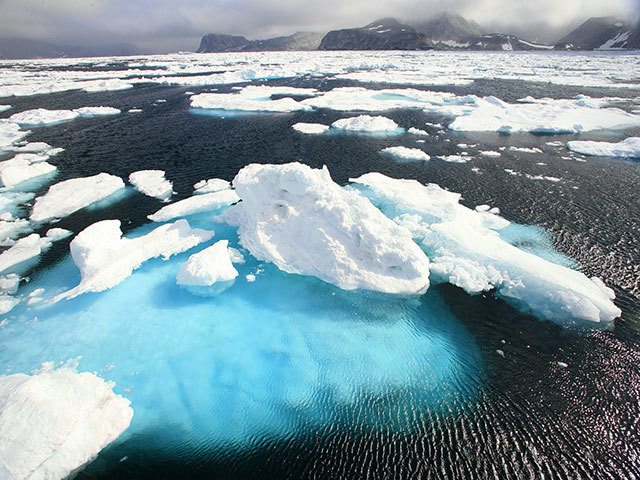
The Canadian government says it won’t grant extensions to exploration licenses for Exxon Mobil Corp., BP Plc and other oil firms as it prepares for consultations over the impact of an Arctic drilling moratorium.
The companies hold leases that expire over the next six years, totaling C$1.9 billion ($1.4 billion) in bids. Prime Minister Justin Trudeau and U.S. President Barack Obama announced new restrictions on Arctic oil development on Dec. 20, with Canada saying existing leases wouldn’t be affected without industry input on a path forward.
In an online background document, however, Trudeau’s government specifically ruled out lease extensions sought by industry before the new restrictions were put in place. Companies had expected that to be a central part of talks.
“Our understanding is they’ll have consultations and conversations with industry, in particular the license holders, with respect to extensions,” said Paul Barnes, Atlantic Canada and Arctic manager for the Canadian Association of Petroleum Producers, the top industry lobby group. “We’re kind of anxious to have further discussions.”
Indigenous and Northern Affairs Minister Carolyn Bennett, who oversees Arctic oil regulation, has declined interview requests since the announcement. Bennett’s spokeswoman, Sabrina Williams, referred questions about extensions to the department.
When asked specifically, the department didn’t directly address its online statement that extensions won’t be granted — saying instead companies are free to keep asking for them. “Should stakeholders raise license extension issues during the consultations, the Government of Canada will take their feedback into account to inform next steps,” departmental spokesman Shawn Jackson said in a written statement.
There is no current offshore oil production or drilling in Canada’s Arctic, though exploration there dates back to incentives brought in by Trudeau’s father, former Prime Minister Pierre Trudeau. Five companies hold exploration licenses expiring between 2019 and 2023, all in the section of the Beaufort Sea that lies along the shores of Canada’s Yukon and Northwest Territories.
The Canadian leaseholders are BP; Imperial Oil Resources Ventures Limited, controlled by Exxon; ConocoPhillips Co.; Chevron Canada Ltd.; and Franklin Petroleum Canada Ltd. Two other exploration licenses issued in the 1980s to Talisman Energy Inc., acquired by Repsol SA in 2015, and BP have no expiry dates.
Trudeau’s government has said those companies are eligible to upgrade their licenses in the event of a discovery, but initially referred to consultations when pressed on whether extensions will be allowed. The prime minister has pledged to review the moratorium in five years, when all but Franklin will see their exploration licenses expire.
Of the outstanding exploration licenses, Imperial’s were acquired at the highest cost — C$1.8 billion in work bid commitments. Imperial said last month it had previously sought extensions for exploration licenses “to ensure future oil and gas activities are conducted in an appropriately paced, safe and environmentally responsible manner.” The company didn’t respond to a request for further comment.
The most recent exploration licenses were acquired at lower costs — between C$1 million and C$1.3 million each — by Franklin, as recently as 2014. “We remain in contact with the Ottawa authorities on this and will certainly be involved in the proposed review to find a way forward to explore in the North,” Paul Barrett, a Franklin executive, said in an e-mail.
If companies walk away from bids, the government can call in the value of work permit guarantees, Barrett said, while adding the matter could end up in court if work is blocked. “Extending these licenses will likely be a key part of the review, rather than technical discussions around Arctic drilling,” he said.
In a written statement, BP said it would “work to understand any potential implications to our business.” Conoco and Chevron declined to comment.
Environmental groups welcomed the joint move by Obama and Trudeau, and have called for stringent restrictions on existing activity. Alex Speers-Roesch, a Greenpeace campaigner, said developing Arctic oil is at odds with Canada’s emissions reduction pledges.
“By their own logic, the government should go further and pause all Arctic oil and gas projects until they have rigorous tests in place that assess whether these projects make sense in the low-carbon world Canada championed in the Paris climate agreement,” he said in an e-mail.
Trudeau and Obama announced the measure without involving the Northwest Territories government, drawing a complaint from its premier, Bob McLeod. McLeod said the unilateral move will require the federal government to fund other industries in the sparsely populated region, where the cost of living is among the highest in the country.
Recommended for you
